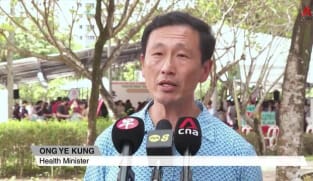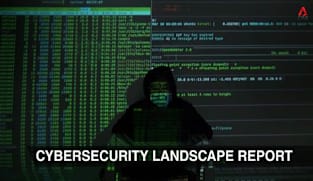Josephine Teo on building an inclusive and safe digital society
Singapore is issuing new app guidelines to better protect high-risk monetary transactions made online. The Safe App Standard will help app developers “design for security”, Communications and Information Minister Josephine Teo told Parliament on Wednesday (Jan 10). It sets out best practices to reduce the risk of malicious actors exploiting weaknesses in app design. These could include requiring additional user authentication and built-in malware detection capabilities. The standard will be voluntary for now but could be made mandatory if it is determined to be useful. Guidelines have also been introduced to help telcos protect vulnerable consumers from being tricked into signing up and footing bills for phone lines used for scams. Frontline staff are advised on how to identify at-risk consumers and handle cases of suspected exploitation. Telcos are also encouraged to waive charges for scam victims. A centre is also being launched by MCI and A*STAR to build up capabilities for a safer Internet, working with research partners, companies and other practitioners. These capabilities could include tools and measures to detect harmful content like deepfakes and false claims, inject watermarks or trace the origin of digital content, and empower vulnerable groups with resources to verify information they find online. The research efforts will also help inform new legislation or regulations to address issues like deepfakes, said Mrs Teo.
Singapore is issuing new app guidelines to better protect high-risk monetary transactions made online. The Safe App Standard will help app developers “design for security”, Communications and Information Minister Josephine Teo told Parliament on Wednesday (Jan 10). It sets out best practices to reduce the risk of malicious actors exploiting weaknesses in app design. These could include requiring additional user authentication and built-in malware detection capabilities. The standard will be voluntary for now but could be made mandatory if it is determined to be useful. Guidelines have also been introduced to help telcos protect vulnerable consumers from being tricked into signing up and footing bills for phone lines used for scams. Frontline staff are advised on how to identify at-risk consumers and handle cases of suspected exploitation. Telcos are also encouraged to waive charges for scam victims. A centre is also being launched by MCI and A*STAR to build up capabilities for a safer Internet, working with research partners, companies and other practitioners. These capabilities could include tools and measures to detect harmful content like deepfakes and false claims, inject watermarks or trace the origin of digital content, and empower vulnerable groups with resources to verify information they find online. The research efforts will also help inform new legislation or regulations to address issues like deepfakes, said Mrs Teo.



















